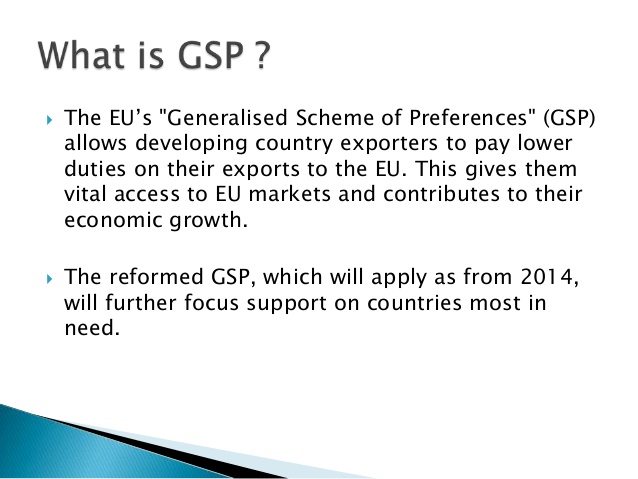In January 1st, 2015, the European Union's generalized scheme of preferences (GSP) was withdrawn from over 6,200 Thai products. That means that increased tariffs will not apply to two thirds of product categories, including automotive parts, meats, precious stones, rubber products, seafood and textiles. Siam Commercial Bank's research has estimated the tariff increases will result in a loss of market share for Thai exporters of about $202 billion. Thai exports that benefited from the GSP only account for 4% of total Thai exports.
Most exports will only see a 2 to 6% increase in taxes. However, products like canned pineapples and processed seafood products will see higher increases. For example, the tariff duty on frozen shrimp from Thailand to the EU will triple, from 4.2% to 12%.
The loss of GSP protection, according to Bank of Thaialnd (BOT) Spokesman Chirathep Seniwong Na Ayutthaya, woudl likely cause Thailand to lose a competitive edge to its SEA trade rivals. Some compeititors, like Malaysia, also face a loss of GSP. However, Malaysia could offset its loss of revenue through FTA promotion with the EU. Thailand doesn't have this option because an FTA between Thailand and the EU hasn't been signed yet.
